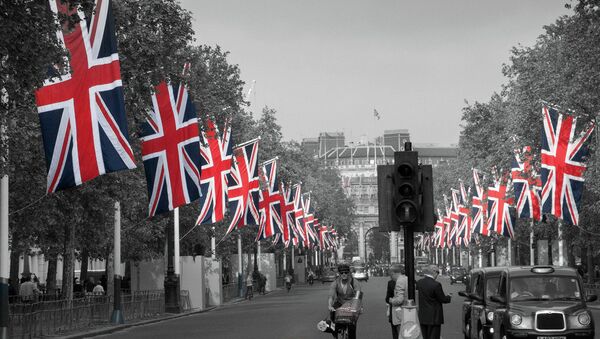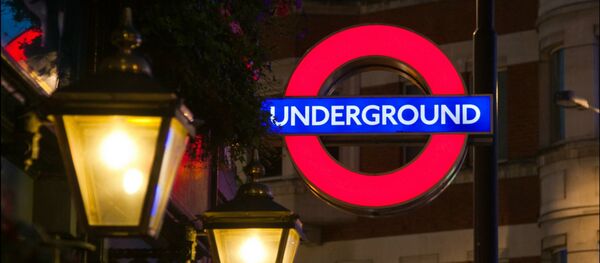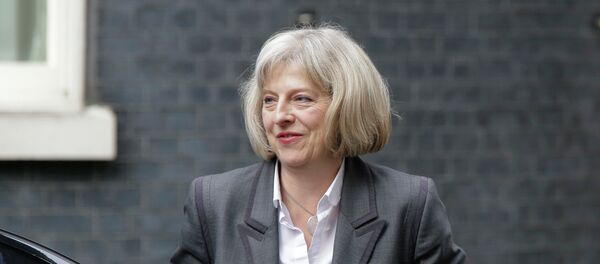Britain has a dirty little secret. Its apparent bustling economy is being fuelled by dirty money from around the world snapping up London's crazy property boom. The lure of low-paid construction jobs is in turn acting to draw illegal migrants to the British capital. But this is no El Dorado. It's a cruel delusion.
Listening to British Prime Minister David Cameron one would think that people are dying to get into the United Kingdom because of the country's enviable economic success.
Certainly, Cameron and his Conservative government, as well as large sections of the right-wing British press, seem to think that Britain is superiorly attractive compared with other European states. Cameron warned of illegal foreigners "swarming" to enter the UK, and there have even been high-profile public exhortations for the British army to be deployed to "defend our shores."
Official figures appear to show that Britain's economy is growing at a faster pace than its European rivals of German, France and Italy. British Chancellor George Osborne crowed that Britain was "motoring ahead" and that this was vindication of his prudent policies.
But headline statistics for gross domestic product (GDP) can conceal more than they reveal. Britain is effectively composed of two economies. The real one, where most of the population lives, is sluggish and lackluster. This includes the regions of Scotland, Wales and Northern Ireland, as well as England's former industrialized north and midlands. Meanwhile, the parallel economy of London, the capital, is booming.
London is one of the command centers of the global economy, with its City of London financial nexus. During the international crisis that emerged in 2008, London maintained its hiving economy — unlike the British regions — because global capital will always course through London markets. British authorities are reputed — some would say disreputable — for their "hands off" attitude towards international finance, giving banks a free rein to conduct their activities in speculative trading and, let's put it bluntly, money-laundering. British banks Barclays and HSBC have been found guilty by US investigators of illegally rigging markets and laundering money for drug dealers.
Not all of London's economic success is built on corruption, of course. But arguably a lot of it is, even those sectors of banking and finance that are ostensibly legal and professional.
There is a reason why London can boast of more resident billionaires than any other city in the world. While some of these billionaires can claim to have made their wealth through legitimate means, many others have become rich through illicit businesses of narcotics, arms, embezzlement and people trafficking.
Over 36,000 properties in the British capital are reckoned to be owned anonymously through offshore shell companies, which have been set up for the purpose of concealing the buyer's identity. One-third of company-owned real estate in London is registered in the British overseas territories of Virgin Islands, Guernsey and the Isle of Man. In these territories, the companies do not pay taxes and are allowed to operate without declaring where the money for property purchase originates from.
This means that billions of dollars worth of criminal money from around the globe can be flushed through British tax havens and then laundered in the British capital by buying up high-end properties in Mayfair, Knightsbridge and Belgravia. Some 75 per cent of real estate worth over $1.5 million each under investigation by British police is estimated to be linked to black market funds.
Britain's — or rather London's — image of becoming the global center for dirty money has prompted Prime Minister David Cameron to make a big speech this week in Singapore denouncing financial corruption. Cameron said his government "will not allow Britain to become a safe haven for corrupt money." Too late Mr Cameron. Britain is already a safe haven for illicit finance — and that's based on data from London's very own Metropolitan Police at Scotland Yard.
There are several consequences from this sordid distinction, which the British government and media would prefer not to acknowledge. Firstly, London's skyrocketing property market, due to the global money-laundering frenzy, is causing thousands of ordinary Britons and their families to vacate the city because they can no longer afford to live there. Housing charities estimate that some 50,000 people have been forced out of London in the past three years because of the financial warping effect. Jeremy Corbyn, veteran London MP and leadership contender for the Labour Party, has condemned the mass exodus from the capital as a form of "social cleansing."
Secondly, the gravitation of global money to snap up London property is a key component of Britain's headline economic performance. London represents about 22 per cent of Britain's total GDP. So, the capital's feverish financial speculation and money-laundering gives the impression that the country's economy as a whole is doing relatively well. But, as already noted, it is not. Britain's regions are dying from deteriorating public spending and services, poor housing and infrastructure, and from long-term unemployment or low-paid jobs. And part of the reason why the rest of Britain is collapsing is that London is riding high on dirty money.
Britain's "booming economy" on "sound policy fundamentals" is a myth that British leaders and media perpetuate out of a delusional sense of superiority. The truth is that Britain's economy is largely being driven by financial wheeler-dealing — and a large part of that is outrightly criminal.
London's calling of global dirty money is not only killing Britain from the country's lop-sided economy; it is also, tragically, killing many illegal migrants who are desperately searching for any kind of employment. Just like David Cameron these migrants are drawn to the myth of Britain's "economic success."
But the reality of London's delusional calling is like getting hit by high-speed train.
The views expressed in this article are solely those of the author and do not necessarily reflect the official position of Sputnik.





